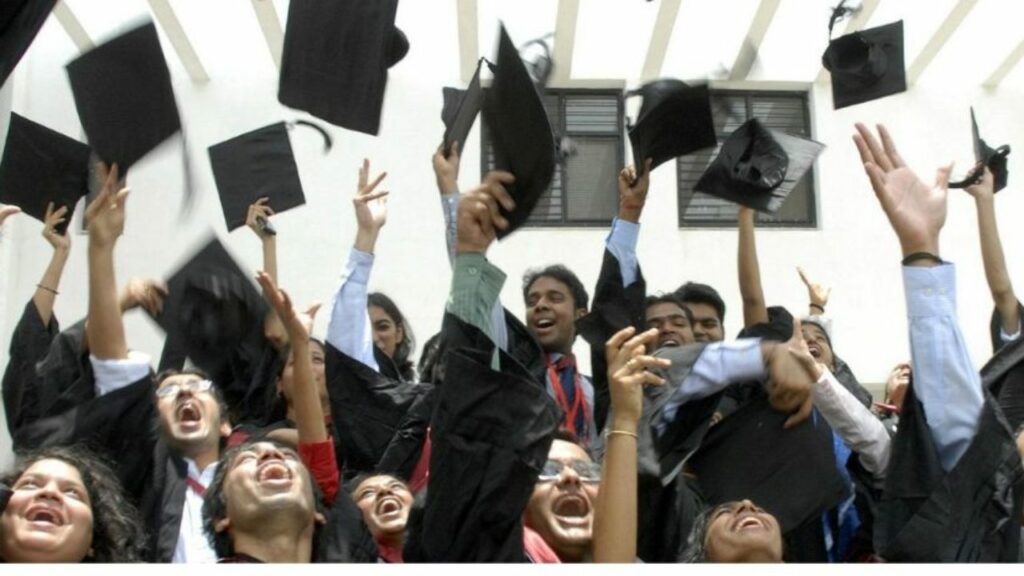According to UGC Chairman Mamidala Jagadesh Kumar, university admissions will be allowed twice a year beginning with the 2024–25 session, in line with foreign universities.

Universities will begin offering biannual admissions in July–August and January–February starting with the 2024–25 session.
University Admissions To Be Allowed Twice A Year
The head of UGC unveiled a strategy that would allow industries to hire on campus twice a year in an effort to close the skills gap between graduates and the workforce.
It is anticipated that this regulation will greatly increase students’ employment opportunities. These innovations are a part of the UGC’s efforts to revitalize India’s education system.
The head of UGC declared in April that students who have completed four years of undergraduate study can apply directly for NET and pursue PhD programs.
In order to pursue a PhD program, students must earn at least 75% of their four-year undergraduate courses in marks or equivalents, regardless of whether they get a Junior Research Fellowship (JRF). The goal of the plan to permit biannual admissions is to improve higher education in India’s accessibility and flexibility.
The goal of the UGC’s initiative to match the admissions schedule with overseas universities is to make the educational system more globally competitive. The UGC hopes to guarantee that students have greater chances to enter the workforce shortly after graduation by instituting biannual campus hiring.
Goal Of New NET Eligibility
The goal of the new straight NET eligibility and PhD pursuit policy is to make it easier for students to go from undergraduate study to chances for advanced research.
In order to uphold a high level of academic achievement, PhD candidates must receive at least 75% of their marks or equivalent grades. The UGC’s reforms are a part of a larger plan to update India’s educational system and better equip students for difficulties faced by the world.
It is anticipated that these modifications will boost the standing of Indian universities by drawing in more foreign students and researchers. The actions taken by the UGC show a dedication to raising the general standard and applicability of higher education in India.
The implementation of these rules demonstrates the UGC’s commitment to supporting student innovation, research, and employability. Universities and industry will need to modify their planning and coordinating procedures to accommodate the new hiring and admittance timetables.
It is expected that these changes would result in an education system that is more adaptable and dynamic and can better serve the requirements of both companies and students. The National Education Policy (NEP) 2020, which prioritizes flexibility, multidisciplinary education, and increased student mobility, is in line with the UGC’s initiatives.
To make sure these programs produce the intended results in terms of employment rates and educational quality, their progress will be continuously tracked.











